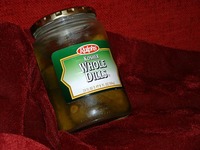 |
| Angelika/Mike Schilli |
|
Michael It's hard to believe now, but two or three hundred years ago, America was still a refuge for all those who were considered peculiar somewhere in old Europe or had done something that violated the laws of their home country. Once they arrived in their new homeland, they continued to maintain their peculiar traditions, and since everyone valued their own peculiarity, a consensus was soon found: Everyone is entitled to their favorite peculiarity, as long as it doesn't harm anyone else! This is still reflected today: Freedom of religion is one of the most inviolable things in America.
That's why we're introducing a new series in our newsletter: "Religions in the Metropolis" -- and what Europeans don't know about them. Today: Judaism. This is rather rare in San Francisco, but if you've ever been to New York City, you've surely noticed the Orthodox Jews who are dressed all in black, wear wide-brimmed hats, and, as we want to highlight today, let their sideburns grow long. What's the reason behind this? "You shall not destroy the corners of your beard" (Lev. 19:27) is stated in the Torah, and this primarily referred to the chin and the area around the ears. It was interpreted to mean that only razors were forbidden, while it was permissible to trim the beard with scissors. Modern electric shavers don't work like a razor but more like scissors, so it is now acceptable for devout Jews to shave cleanly in accordance with their religion. However, the same verse states, "You shall not round the corners of your head," which, according to Orthodox Jews, also applies to trimming the sideburns with scissors. Therefore, they do not cut them but twist them and let them grow throughout their lives.
How do I know this? In America, there are books about just everything. There's a lot of entertaining information about Jewish customs and traditions in "To Be a Jew" by Rabbi Hayim Halevy Donin. It was recommended to me by a Jewish colleague who received it for his Bar Mitzvah (something like a confirmation).
Strictly observant Jews are not allowed to work on Saturdays, by the way. If you've ever been to New York City, you probably know "B&H Photo," the famous photo store on 9th Avenue (at the corner of 33rd Street), which offers high-quality photo products at affordable prices. Take a look at their opening hours:
Sunday: 10:00 am to 5:00 p.m.
Monday through Thursday: 9:00 am to 7:00 p.m.
Friday (winter EST): 9:00 am to 1:00 p.m.
Friday (Summer DST): 9:00 am to 2:00 p.m.
Saturday: Closed
Correct: The store is run by devout Jews who honor the Sabbath. For several years now, B&H has also been on the internet on bhphotovideo.com. The company handles orders for just about every photographer in the entire country -- but that doesn't change the fact that no one works there on Saturdays: The website is operational, but customer service is closed and orders are not processed until Sunday.
You might have already heard the word "kosher." Whenever I buy pickles, I keep wondering about the "Kosher" label (illustration 2). It means something like "okay" when referring to people ("You know, that guy isn't quite kosher!"), but it mostly relates to food: "Kosher" food contains only permitted ingredients and is prepared according to Jewish religious laws. This generally means: No pork. A few thousand years ago, it was risky to eat pork (due to trichinosis), as it spoiled quickly because of the lack of hygiene regulations. Nowadays, Jews avoid pork for the same reason Catholics avoid meat on Fridays: Tradition.
On the Sabbath, turning electrical devices on and off is also prohibited. However, what is already turned on is allowed and even must continue to run. To enable strictly observant Jews to cook a warm meal on the Sabbath, the American company GE offers a Stove with Sabbath mode. It's continuously running at full speed all day, but turns off its display and does not beep under any circumstances.
Another rule is "You shall not boil a kid in its mother’s milk," which has been interpreted to mean that meat and milk may not be cooked together. This makes beef fried in butter off-limits for strictly observant Jews. Beef in creamy sauce is also taboo. The rule was even extended to chicken, so no "Kan Kari Gai" at the Thai restaurant either. And in the kitchen, separate pots are used for meat and milk. Even the dish towels used to dry washed plates—on which either milk or meat was served—are color-coded! And after eating meat, one must wait several hours before consuming any dairy products!
Jews are also not allowed to eat blood; blood sausage is out. Meat must be either roasted or salted until no blood remains. There are also restrictions with fish: only those with fins and scales are allowed. No lobster, no oysters, no shrimp, mussels, or crabs, no eel or snails.
What does all this have to do with pickles, how could they not be kosher? It's about ensuring that no ingredient is of animal origin, or if it is, that it complies with kosher regulations. Our cucumbers seem to be okay. Well, we all got lucky there.












